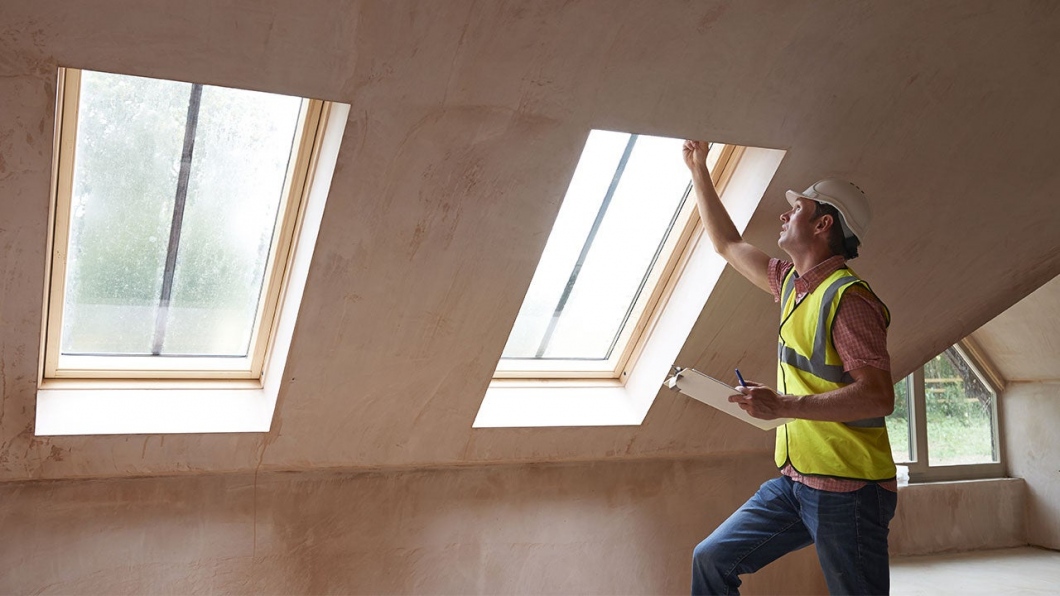A home inspection may be required before you decide to sell your property. The inspection typically covers various aspects of the property such as its roof, heating and cooling system, appliances, and electrical systems. The inspector also looks for any structural damage that might be hidden from view. They can also identify potential problems with the soil and foundation. By taking a closer look at these aspects of the home, they’ll help you make an informed decision about whether to proceed with the sale.
Roof Damage
If you’re selling a property that has a damaged roof, it’s important to understand the severity of the damage. A cracked or leaking roof will have a significant impact on your ability to sell your property. There are four common types of roof damage: small cracks in the asphalt shingles; cracked shingles due to age or UV exposure; separation from the house; rusted metal flashing. The inspector is looking for any instances of these four types of damage as well as any associated water leaks. They’re also looking for any signs of mold, which can be an indication that there’s been some type of water leak.
If your roof isn’t in good condition and looks like it will need to be replaced, this can impact the value of your home. You might not be able to sell your home for as much as you would otherwise. Also, some potential buyers might see this as a red flag. You will need to make the decision of whether or not to replace the roof before you list your home.
Mold and Water Issues
Mold and water issues can be a major concern for a home inspector. They’re also a major concern for the homeowner. These issues are often difficult to spot, but they can cause significant damage to your property. It’s important to take care of these problems before they become an even bigger problem.
Mold is most commonly found in areas that are damp or moist such as bathrooms and basements. Mold can grow anywhere spores land and collect moisture like on wallpapers or insulation materials, window frames, and underneath carpets. Exposure to mold is associated with allergic reactions, respiratory problems, and other illnesses. A home inspector will search for any signs of mold during the home inspection and recommend ways to remove it if it’s found. They’ll also inspect your HVAC system to make sure it’s working properly so you don’t have mold spreading inside your house from outside air.
Electrical Problems
The inspector will look for any signs of wear and tear on the electrical system. They’ll check to see if there are any exposed wires, worn out insulation, or cracked outlets. If the property is older, they may also look for signs of damage to the wiring system due to animals or rodents. This commonly happens when the insulation deteriorates over time. If this happens, it can cause a fire hazard.
Oftentimes, inspectors will also check the home’s circuit breakers and fuses for any signs of wear out or malfunctioning. They’ll also take a closer look at whether or not there are proper safety measures in place should this ever happen. With these safety measures in place, your property would be less likely to catch on fire during an electrical malfunction. Additionally, you could save money by catching minor problems before they become major issues. You don’t want to put the future owner of your home at financial or safety risk as a result of buying a home with major electrical problems.
Foundation Problems
The inspector will look for any signs of foundation problems, including cracks in the foundation that might allow water to get into the house. They’ll also check the drainage around your home for any signs of erosion or seepage. If you have any doubts about the foundation, it’s important to have an inspection done because these are problems that may be difficult to detect on your own.
Foundation problems can cause significant issues for homeowners like leaky basements and structural instability. They also cause you to spend more money than necessary on energy bills because there may be a higher volume of cold air coming in during winter months if there is no insulation in place. So, if you notice anything out of the ordinary when looking at your property’s foundation, it’s worth having it inspected by a professional before deciding to sell the property. Foundational problems can be easy to spot, so it could possibly deter many potential homebuyers from purchasing your house.
A house is one of the most expensive purchases you can make. And these days, it could be your biggest investment. So before you list your home for sale, it’s important to get a professional inspection. A home inspector will do two things: identify problems that need fixing (or ones you need to be prepared for) and document the condition of your property. The report will make it easier for you to get your house ready for sale. And you’ll get the peace of mind that comes with knowing you’ve done all you can to make your house attractive to prospective buyers.

